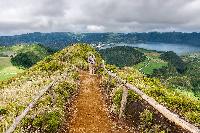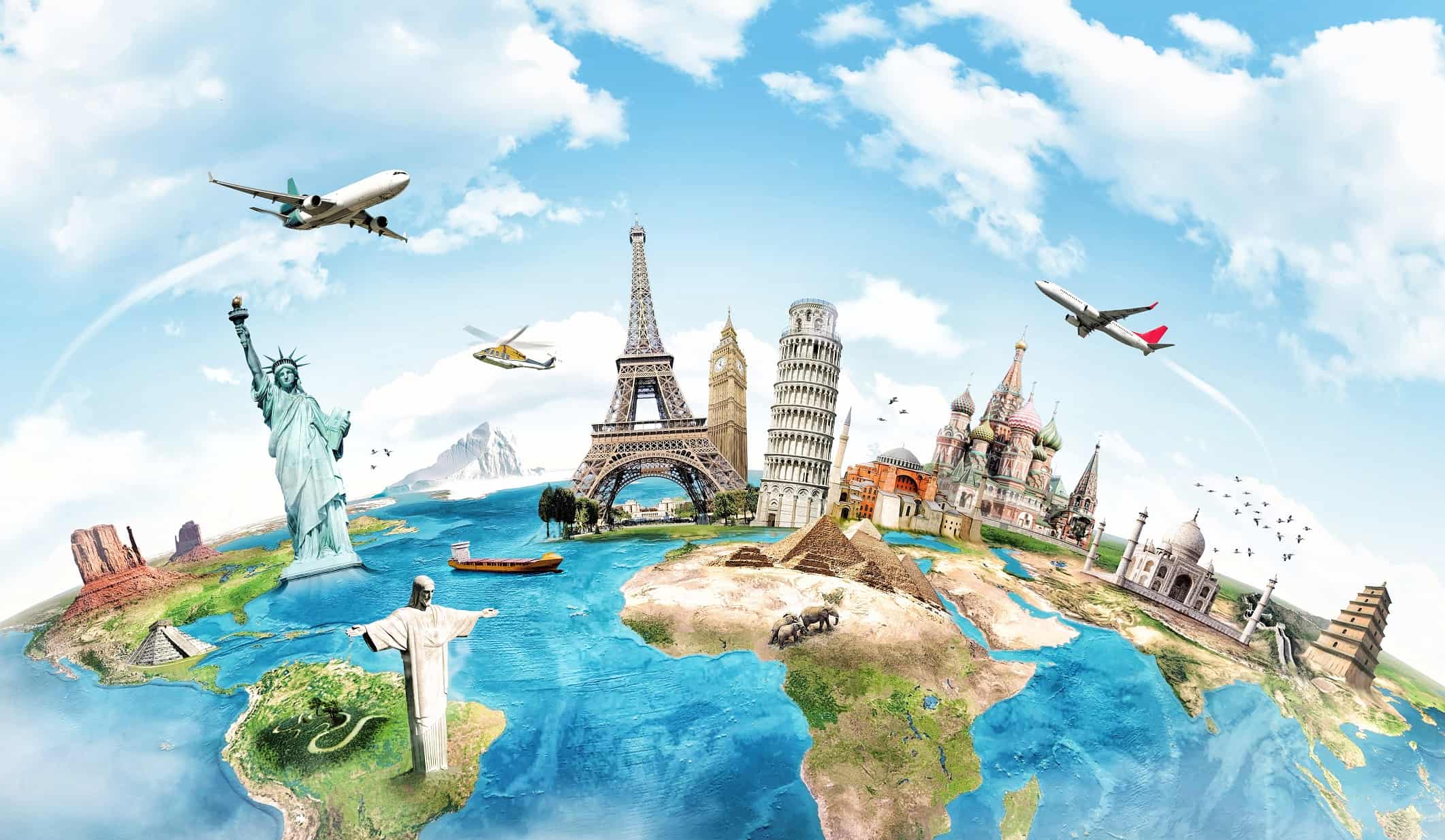CanadianTraveller.com recently polled readers and asked them, "When travelling, what is the biggest challenge you experience?"
Naturally, time and money - or lack thereof - were popular responses. Among the obstacles you wrote about, one reader said, “There are a million tour companies out there.”

So how do you even begin to narrow down the search for the right tour and tour operator?
You could search the internet and see which companies come up at the top of Google. You could ask a travel agent. You could ask a friend or family member who they’ve travelled with. Or you could close your eyes and point to an ad in the classifieds.
Just kidding. Don't do that.
Before you launch into a cascade of information, I want to help you sort through the noise.
Why am I writing this? Well, as our reader pointed out, there are a ton of operators. Even I get overwhelmed, despite the fact that I work for a travel magazine and have a lot of great resources and people to ask. I'm writing this specifically for those who feel dizzy with choice; those who don't have a clue where to start. I want to lend you some advice from my own past guided travel experiences because yeah, it can feel like there are a million tour companies out there.
Let me also say – some people are skeptical of guided travel altogether; they praise the spirit of independent travel or lengthy backpacker-style sojourns. Listen, I get it, but truly, there’s no wrong - or right - way to travel. Not everyone finds blowing with the wind enjoyable. Some find that uncertainty anxiety-inducing.
Now that we’ve put that to bed, let’s get to finding the perfect tour operator and itinerary for YOU.
PS - this article is totally unsponsored. All opinions are my own.
Finding the right operator:
Take a self-assessment
 Adobe Stock
Adobe Stock
How old are you?
Don't blush, I'm not carding you.
Established tour operators generally specialize or market themselves by age demographic, which dictates the design of an itinerary. For example, Contiki travellers must be 18-35 years-old while Geckos Adventures travellers max out at 30 years. Why? They understand that like-minded travellers typically gravitate to similar experiences.
Other operators may serve an older demographic - though less explicitly - by price point. Naturally, budget is a divisive factor, and consequently, luxury itineraries are much less likely to host young backpackers as guests.
So, to start narrowing your search, use your own demographic to rule out certain operators.
What is your travel style?
What things are important to you when you travel? Are those values aligned with the company's values, with the operator's personality?
Like people, travel companies have personalities. Are you a rah-rah, extroverted traveller who likes to sample the nightlife? Or are you a history buff who seeks in-depth local knowledge?
How fancy does your hotel need to be?
Do you prefer luxury hotels, or are you of the mindset that rooms are just for sleeping?
When picking your tour, you want to pay special attention to the accommodation. A budget tour will include clean and basic rooms in a safe hotel. It may also include a mix of accommodations: guesthouse, pension, hotel, teahouse, canvas tent, etc.
 Phil Coffman
Phil Coffman
If you want to stay in a beautiful, Instagram-worthy Moroccan riad or an iconic London hotel, you’re going to have to ‘level up’ your overall budget.
Some companies will list the names of the hotels you'll stay at, while others will label a trip by 'trip style'. For example, Intrepid offers basix, original and comfort, where basix will be clean and central, and original will be tourist-class hotels. Alternatively, Collette's accommodations are 4-stars or greater, by design.
How fast do you want to travel?
Here’s my number one recommended tip: inspect the itinerary. Does the trip spend one night in each place? Or multiple nights?
Changing hotels each night is taxing. It means you pack up and unpack every day; it means you probably have a lot less down time; and it means you won’t really be digging into a city. Unless you’re river cruising, then you wake up in a new city each day but only unpack once.
How many people do you want to travel with?
Do you want to travel with 30+ new friends by coach bus? Or, do you prefer to travel with a small group (12-15 or less) via mixed modes of transport? Typically that means vans, public transit and sometimes via airplane.
How active do you want to be?
 Adobe Stock
Adobe Stock
Operators will indicate how adventurous - or gentle - a tour is. What does that take into account? Things like how demanding the inclusions are, whether activities are physically demanding, and if there are long, multi-hour or overnight travel days.
How to pick the right tour itinerary:
the nitty-gritty
 efks - Fotolia
efks - Fotolia
Okay, so you’ve identified a few operators who might be a good fit for you. Now what?
Before you pick apart the itineraries on offer – or get swamped by the choices– ask yourself, what are your non-negotiables? Which places or highlights have to be included on the trip? If they’re not built into the tour, will you have the free time to do them?
Next…
Do your dates work?
The easiest way to eliminate a tour is to check the operator's departure schedule. You might just find out that the arrival of your international flight doesn't jive with their start date. Maybe the tour is too long, or perhaps it's already sold out.
How much free time do you want?
Do you need down time to recharge your batteries? Does the trip give you enough freedom to do so?
How many inclusions do you want?
Do you want the option to pick your inclusions, à la carte-style? These trips are typically a bit cheaper because you pay for admission or activities out of pocket, in-destination. Alternatively, you might implicitly trust the guide to take the reins and fully plan the activities; they’re the local expert after all.
How much time do you have?
Be realistic about pace. This relates back to how fast you want to travel. You also need to account for international transit to the country and the time it will take to recover from jet lag.
A lot of tours are 3-days, 5-7, 10-12, 15, 20-25, or 30-60+ days in duration.
What’s your budget?
Trust me, picking the low-cost leader is the surest way to hate your holiday. You WILL get what you pay for.
It's also important to account for what isn't included. If you're overlanding, there might be a group 'kitty' that you're expected to contribute to. How many meals are covered each day? All or just breakfast? If you're travelling solo, is there a single supplement? What if you need to cancel your trip for unforeseen reasons? Can you get refunded in full or a company credit?
The bottom line is, you really should opt for reputable operators who are reviewed by real travellers. There are plenty of opportunities to score deals; you don’t need to cheap out.
Wait, how do I score deals?
Timing.
Some companies offer early payment discounts for those who book in full, oftentimes months before their departure date.
Alternatively, others benefit last-minute travellers. If you’re willing to book 2-4 weeks before the tour departs, you can often save hundreds of dollars.
Consider unique differentators:
 ruslanita - Fotolia
ruslanita - Fotolia
Want to travel with purpose?
Plenty of operators have their own charitable foundations that benefit local initiatives they choose to partner with. Some trip itineraries will even visit these places.
Homestays & authenticity
Some tours will see travellers dine with locals or spend a night or two at a remote village homestay. Talk about an authentic experience.
Special-interest itineraries
I've seen everything from food-based to faith-based, and no-phones-allowed to royal garden themed trips. If you have a niche-interest, there's probably a tour for that.
Golden Rules:
Thou shalt heed this sage advice
 Flickr/visnup (CCby2.0), edits made
Flickr/visnup (CCby2.0), edits made
- Pick a reputable, traveller-reviewed company.
- Read the reviews; they often contain valuable first-hand recommendations and feedback.
- Pick companies that emphasize safety and work with reputable partners.
- Give a pass to companies that don't practice responsible tourism. Ex: riding elephants or posing with tigers. Wouldn't you rather give business to travel companies that care about the sustainability of the places they travel to?
Still feeling lost or overwhelmed?
 Adobe Stock
Adobe Stock
- Remember, if you’re still stumped by limitless choice, it’s sometimes easier to determine what you don’t want, rather than what you do want. Then, work backwards through a process of elimination.
- Try starting with the destination and then pick a tour operator.
- Get in touch with the operator. Trust me, these people love travel and love chatting travel.
- Speak with a travel agent. Booking your tour through an agent will not cost you more. Plus, the agent may have travelled with the operator before on what the industry calls a 'familiarization trip'.
Good luck tour hunting, safe travels and don't forget to leave a review on the operator's site once you're home. Future travellers will appreciate it.
Here are a few articles I wrote about my guided travel experiences:
We are the crazy Canadians who honeymooned in Bolivia
7 Myths About Guided Travel (sponsored content)
Do you have a favourite tour company?
Weigh in on the conversation: comment below!



